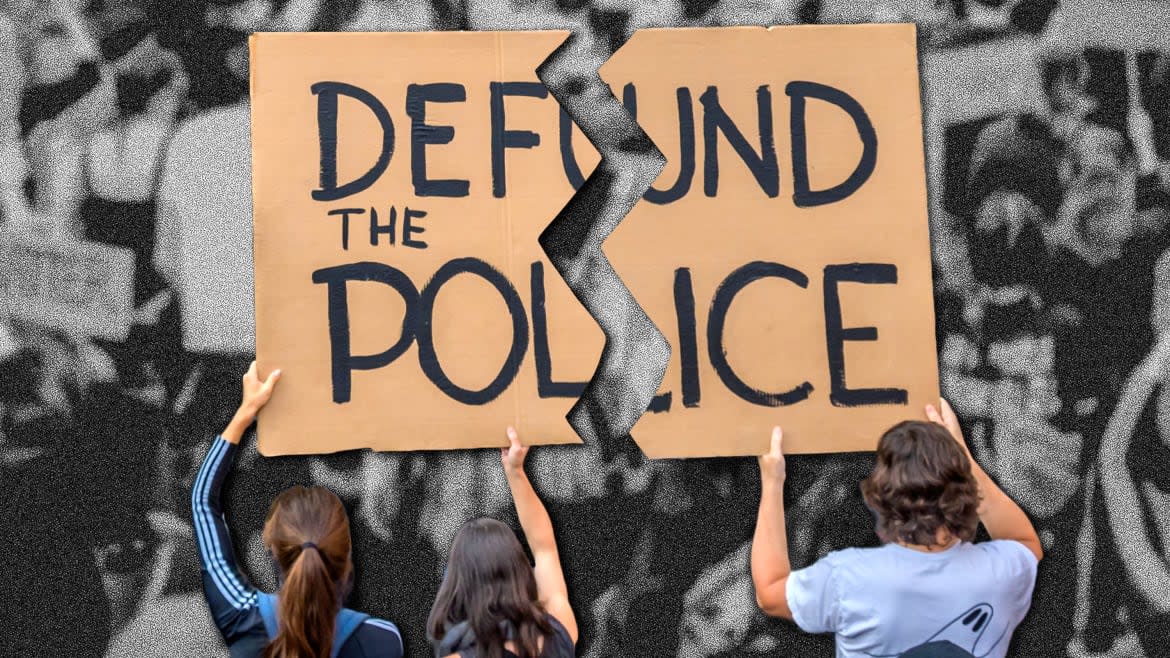The Defund the Police Crusade Got Crushed at the Ballot Box

- Oops!Something went wrong.Please try again later.
Last year, America saw some of the largest police reform protests in its history. These demonstrations called attention to real abuses and helped provide the political capital necessary for reforms from coast to coast.
But alongside demands for reform, there were also calls to go much further. The “defund the police” movement was born, which called for shifting resources away from police departments and towards other government functions. Unlike the broader police reform movement that came before it, this movement focused not so much on reforming police as the idea that policing itself needed to be rolled back or even abolished. The problem wasn’t just quality, it was quantity.
But during this week’s elections, this more radical movement suffered a series of setbacks, suggesting that its progenitors weren’t aligned with voters facing an historic surge in homicides.
In Seattle, where Mayor Jenny Durkan chose not to run for re-election after her “summer of love” last year including the short-lived "Capitol Hill Autonomous Zone" in Seattle, voters favored former Council member Bruce Harrell, who’s praised to hire more officers and improve response times (“Make no mistake about it: I’m not defunding the police”) over M. Lorena González, the council speaker who cut police funding by nearly 20% after backing a pledge to cut it in half. And in the race for city attorney, votes went with a Republican over a self-proclaimed police abolitionist with a history of incendiary, pro-rioting tweets. Neither contest was close.
This City Went From ‘Defund’ to Planning a Massive New Police Fantasyland
In Buffalo, it momentarily appeared as though the activists had broken through when India Walton, a young socialist activist who marched in anti-police demonstrations in 2020, won the Democratic primary for mayor, defeating the four-term mayor Byron Brown. But Brown refused to bow out of the race, choosing instead to continue running through the general election despite the fact that his name wouldn’t appear on the ballot.
Rather than run away from policing, Brown capitalized on the fact that Walton—who self-describes as a police abolitionist—proposed cutting millions of dollars from the police budget. He ran an ad featuring local police decrying the cuts, warning that they’d lead to the firings of officers and a reduction in the force. His write-in campaign ended up succeeding, as he defeated Walton by double digits.
India Walton wants to cut $7.5 million from the Police Department. That means cutting 100 officers, mostly women and people of color. India Walton is too risky. pic.twitter.com/poOcYjOF6Q
— Mayor Byron W. Brown (@byronwbrown) September 15, 2021
Elsewhere in the state, New York City voters chose former NYPD police officer Eric Adams, a Democrat, over Republican Curtis Sliwa, most famously known as the founder of the crime prevention nonprofit Guardian Angels.
Upon his victory in that contest, Adams spoke eloquently about how rising violent crime was on the minds of voters. “When I’m on the ground in Philadelphia, New York, Newark, it doesn’t matter, families want their children educated, they want to be safe in their cities… when we were talking in some parts of the country of disbanding police departments or family members were listening to gunshots and not alarm clocks that was just really out of step with what people wanted on the ground and I knew that,” he told Chuck Todd.
But perhaps the biggest blow to the defund-the-police movement came in Minneapolis, the city that arguably set it off in the first place. Minneapolis voters handily defeated Question 2, which would’ve dismantled the police department and replaced it with a new department of public safety. Although it’s not clear exactly what the new department would’ve looked like, the referendum was broadly seen as an attempt to defund or even eliminate the police.
A glance at the map of the vote quickly reveals that much of north Minneapolis, a heavily African American area, failed to support Question 2.
This Liberal City Defunded the Police. Now It’s Paying Cops to Stay.
Indeed, recent Pew polling finds that just 15 percent of American nationwide think spending on their local police should be reduced; it also found that black and Hispanic Democrats were more likely than white Democrats to support increased police funding.
That doesn’t mean there weren’t a few bright spots for police critics on election night. Proposition A, which would’ve shifted additional funding to the police, failed in Austin, Texas; I produced a short documentary about this vote for Fox News. My takeaway from that experience is that while many residents worried about increased violent crime, they remained unconvinced that increasing police funding would tackle it, especially if it came at the expense of other parts of the city budget. While defunding police is unpopular, greatly increasing their resources can also be a difficult sell.
Boston also elected Michelle Wu, a progressive, as mayor. Wu is a proponent of police reforms and had, as a member of the city council, advocated for cuts to the police budget.
But the overall message voters sent on Tuesday night was that when it comes to policing, voters prefer mending it to ending it. While most people support reforms, they do not support large cuts to police budgets or staffing.
If the movement to defund the police wants to remain politically relevant, it needs to acknowledge people’s legitimate desire for public safety and consider that the main problem with policing is about quality, not quantity.
Get our top stories in your inbox every day. Sign up now!
Daily Beast Membership: Beast Inside goes deeper on the stories that matter to you. Learn more.

